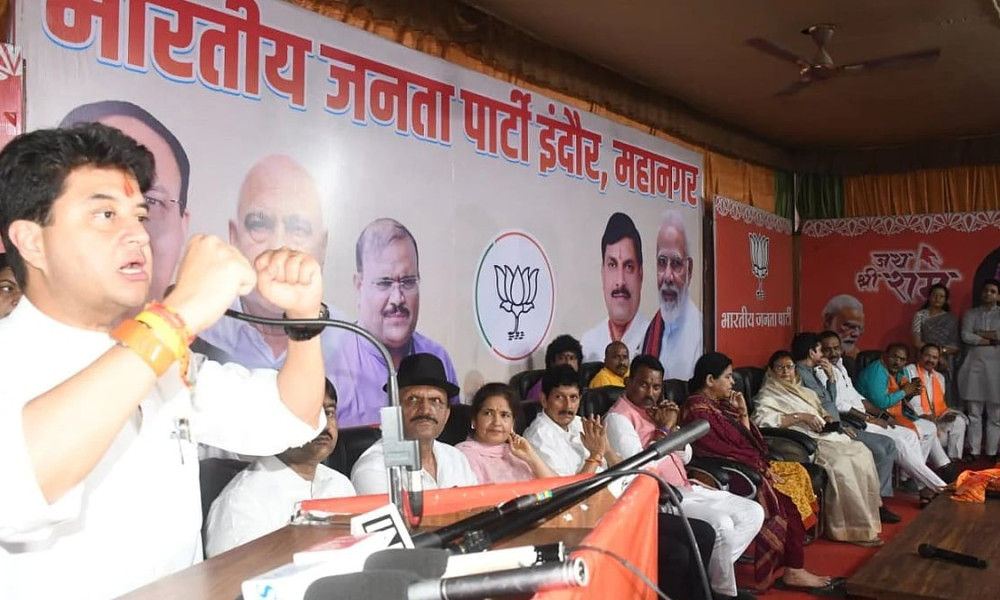Union Minister Jyotiraditya Scindia didn’t hold back on Tuesday. He launched a blistering attack on the Congress, accusing the opposition party of completely losing its moral compass. It seems some lines, in his view, have been decisively crossed.
His sharp comments came in response to some deeply controversial remarks. These remarks were allegedly made against Prime Minister Narendra Modi’s late mother during Rahul Gandhi’s Voter Adhikar Yatra in Bihar. Scindia didn’t mince words, declaring the Congress had become “charitrahin” or characterless. This term, loaded with meaning, suggests a profound lack of integrity and moral backbone.
Scindia drew a clear parallel. He explained that politics, much like personal life, demands at least a minimum level of decency. It’s about respecting boundaries. When those boundaries are violated, he believes, the public itself delivers its verdict against the individuals or organizations responsible. He spoke broadly, not directly naming the Congress, but his message was unmistakable.
He emphasized a core Indian value. India reveres the nation as “Bharat Mata,” a mother figure. To make derogatory references to any mother figure, especially in public discourse, is something Scindia found deeply condemnable. It touches a raw nerve in a culture that holds mothers in such high regard. The idea of a political party stooping to such a level clearly bothered him.
The Union Minister then pivoted to the Modi government’s vision. He painted a picture of a nation on an upward trajectory, firmly on course to become a Vishwaguru, a global leader. This vision of India as a world teacher, a beacon of knowledge and strength, is central to the government’s narrative. It’s a powerful aspiration.
However, he issued a stern warning. Scindia claimed that “forces within India” were actively attempting to undermine the nation’s identity. He sees these elements as a threat to India’s progress and its very essence. But he was also optimistic. “For thousands of years, India has defeated such elements and continued to shine. This time too, it will prevail,” he asserted with confidence. This sense of historical resilience is a recurring theme.
Earlier in the day, before this robust defense, Scindia had addressed BJP workers in Indore. There, he focused on India’s expanding global stature. He referenced significant international events, like the Shanghai Cooperation Organisation (SCO) summit. He also highlighted PM Modi’s recent visit to China. These events, he argued, showcased India’s newfound strength, capability, and self-reliance to the entire world. The image of a strong, independent India is crucial.
Scindia then brought up economic growth, a key area of the government’s achievements. He proudly pointed out that India has successfully surpassed Japan to secure its position as the fourth-largest global economy. This is no small feat. He cited an impressive growth rate of 7.8 percent in the April-June quarter, a testament to the nation’s economic dynamism. This rapid growth continues to be a point of pride and a central pillar of the character of the rising nation.
The ambitions don’t stop there. He looked to the near future with great anticipation. “By 2027, we will overtake Germany to emerge as the third-largest economic power,” Scindia confidently predicted. This statement underscores the government’s long-term economic goals and its belief in India’s sustained growth. The focus on economic power is intertwined with the broader vision of India as a global player, cementing the character of the nation as one of immense potential.

